XM + Sirius, just when the live weather war heats up

It’s not every day that the New York Times puts a tech merger on the top of the front page, but amazingly the XM/Sirius merger, rumored for ages, never came up (around me) in Miami…despite lots of news about their competing marine weather services. Northstar, for instance, previewed its 6100i Sirius Weather product, which makes terrific use of softkeys to mix and view all those data elements (a real challenge). For instance, that “Overlay” key above (bigger here) let’s you page through six different customizable data mix presets, each represented in the little window with icons, and you can further tweak the data presentation by setting ranges if you want.
Furuno was also previewing a Sirius weather product (PDF brochure); the interface seemed much more rudimentary, but since Furuno is using a new generic Sirius receiver (Northstar’s is their own) and there’s also new Sirius weather PC software in the works, a boat might be able to use both on the same subscription. Sirius Weather was also showing on a Maptech i3, which already runs XM, and as part of a ambitious new SkyMate product that includes GPRS and Orbcomm communications. And Raymarine introduced Sirius Weather for the C-Series, which incorporates a cool implimentation of Sirius audio, including volumn control, easy presets, notification of favorite artist and some other subtleties. Audio is already built into the E-Series Sirius receiver—all these receivers, in fact—but the audio interface won’t come for a while.
Meanwhile, XM’s big news is species-specific fish finding data (sorry for poor pic below), as well as extended wave, wind, and surface pressure forecasts and more Canadian data, including radar (Puerto Rico too)—all included in the same $50/month Master Mariner subscription—plus there’s some exciting new hardware and relationships in the works. In short, there’s a hell of a Sirius/XM competition going on just in this little marine weather segment. What does it mean if and when the two become one? Your thoughts please!
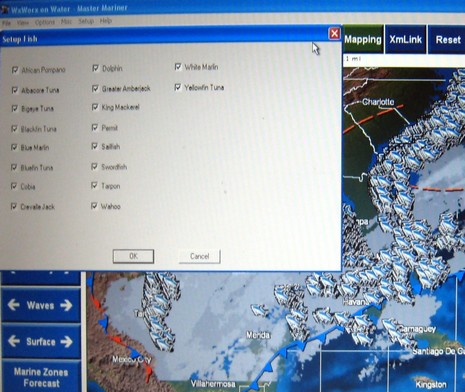


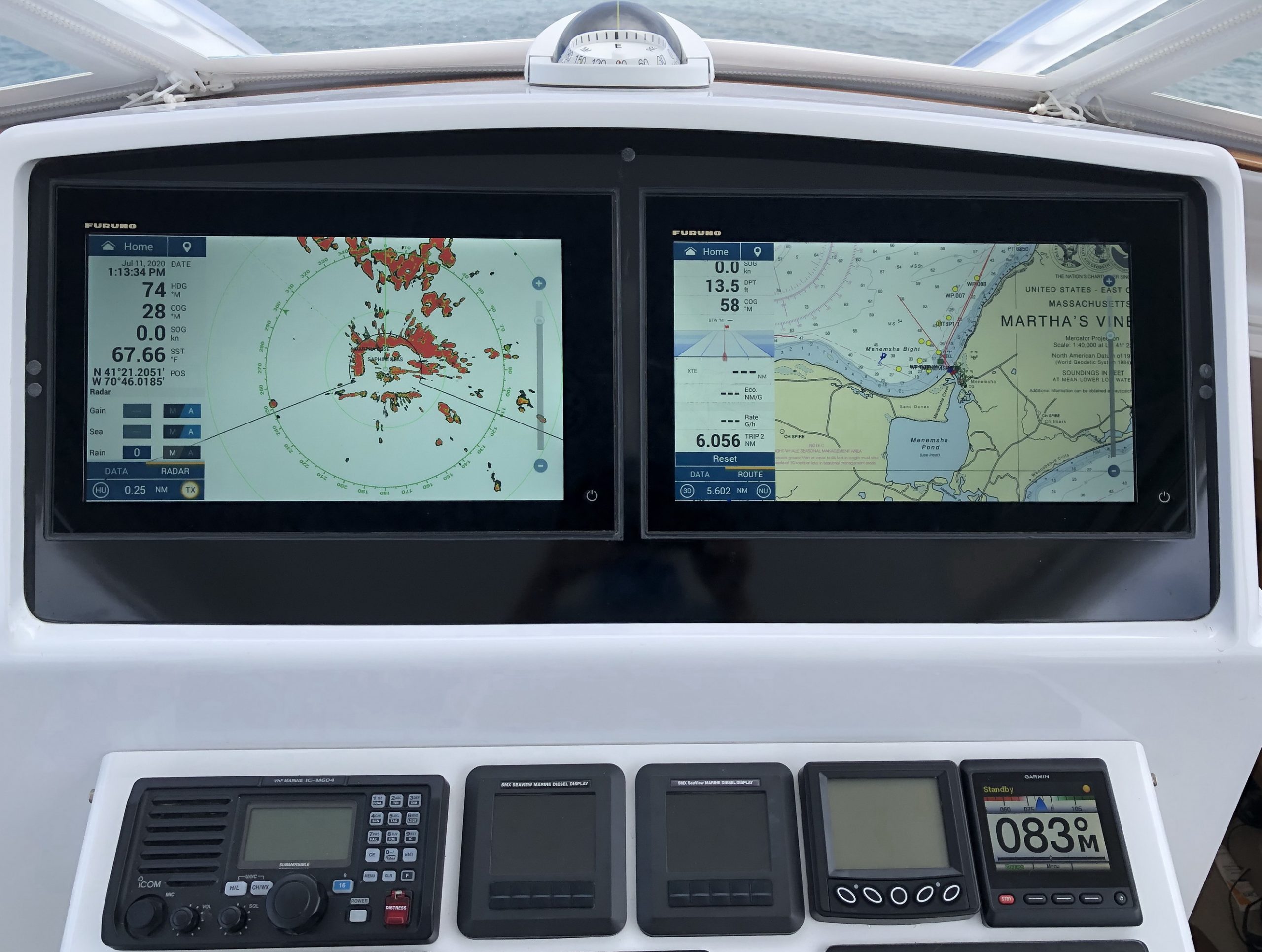
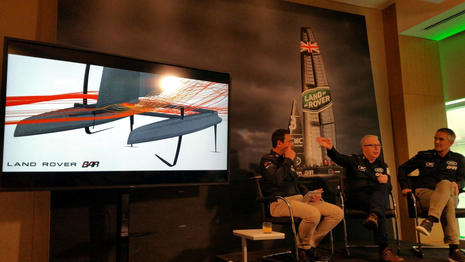
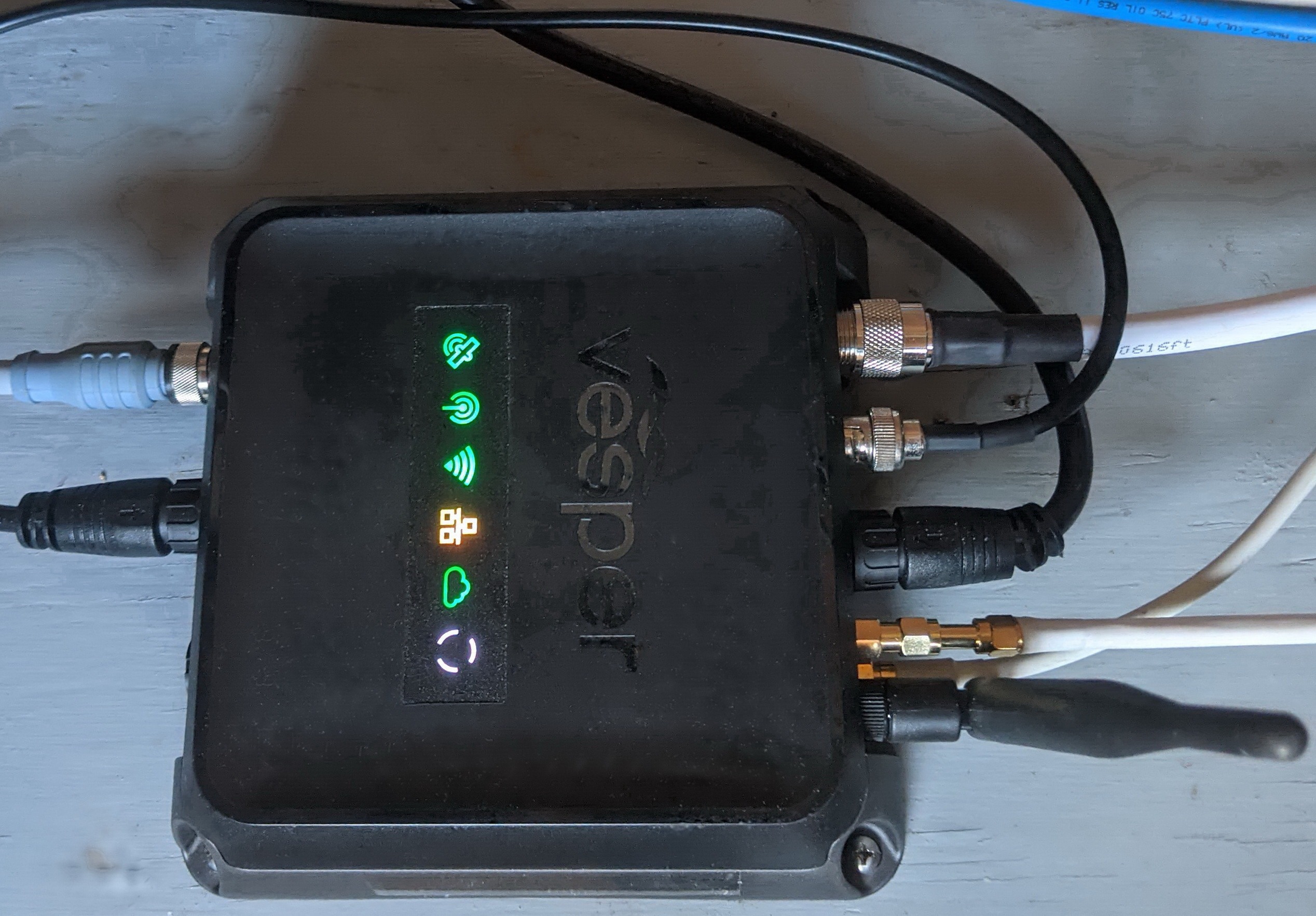
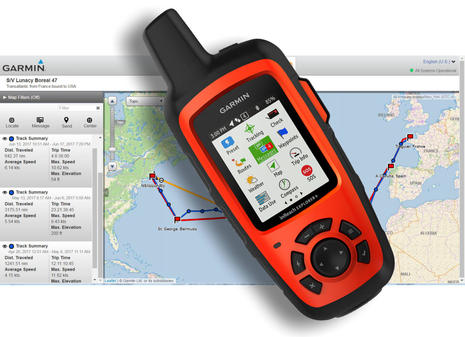







What does it mean? The smart thing is for the separate companies to maintain their separate strategies until FCC approval, but that rarely happens. From this point on each companies employees will be caught in some amount of distress as to how each decision they make will work for a combined company, how they should negotiate contracts, commitments, and renewals with their partners, etc.
However, it won�t much matter, this industry does not seem to reward small incremental improvements. From an innovation stand point, how the weather gets delivered to us depends an awful lot on the providers of our Chartplotter products. I get the distinct impression that each chart plotter company, once it makes the initial effort to add a feature like weather (apparently for Furuno that was a minimal effort) there won’t be competitive pressures to make generous improvements to the features. Look at MARPA for example, it has not evolved much even though we have so much processor power available in newer displays, perhaps enough to get ARPA functionality. Each company probably thinking they did good enough, any incremental improvement won�t be a decision factor to a novice purchaser. Same for weather, it will be “good enough”, let�s move on to AIS.
I would like to believe one day my E-Series will have ARPA (ever try setting a watch zone in MARPA, it’s pointless) or a feature as simple as giving me the combined option of having my boat centered on the screen and getting the true speed of my targets (now if boat is centered, you only get relative speed & direction of targets) so I can make a better evaluation of a suspect radar contact. I would like to believe the AIS Functionality will be upgraded to “Safe Pass” functionality so my helmsman doesn�t need a college degree in vector math, and that my weather forecast will be vastly improved for wind direction and available from my PC at home in the same GUI interface so I can pre-plan and live-adjust my trips without using two different forecasting tools … but I am frankly discouraged after seeing how slow incremental improvements have been coming in Raymarine RNS software, that (1) Weather is going to get any priority or that (2) the chartplotter vendors view how (between lousy and great) they deliver weather, AIS, and other features as a competitive advantage against each other. I especially feel improvements in the weather interface won’t be viewed as a competitive advantage when you figure we are not far from having coastal weather delivered 25 miles out via straight web-browser using EvDo technology from our cell phones.
Also, if I was XM or Sirius, I would be seriously concerned that the chart plotter software developers would exclude any improvements they offer from software updates, when Raymarine is taking forever just to make audio available. If I was a product manager for either company, how could I justify a return on investment of a new feature to generate more subscriptions, when it might only show up in one chart plotter in the next 12 months?
I can see many competitive pressures missing from the marine industry, hope that will be changing soon.
Here are some observations from Good Morning Silicon Valley that suggest that it could be a long time before we see benefits from this merger. In the mean time I think we’re going to see a lot of confusion and paralysis.
“First, there’s the FCC, which granted the companies licenses with the express stipulation that one may never take ownership of the other. The FCC is willing to take a look at the plan, but Chairman Kevin Martin said, “The hurdle here, however, would be high as the commission originally prohibited one company from holding the only two satellite radio licenses. The companies would need to demonstrate that consumers would clearly be better off with both more choice and affordable prices.” Then there’s Congress and the Justice Department, which would somehow have to be convinced that the consolidation of two dominant players into one does not run counter to antitrust laws and public interest.”
“And then you’ve got the technical issues. The two systems and their receivers are incompatible right now. Sirius CEO Mel Karmazin, who would head the new company, said in a conference call, “You should assume that we’re going to continue for a very, very long period of time to offer the Sirius and XM service. Once this merger is approved, we’ll be able to work with receiver manufacturers and chip-set designers to have a next-generation radio that can pick up both services.”
As a consumer, my perspective is that the merger only makes sense if the market is too small to support two companies. Their combined revenues are about $1.5B, and their combined loses are also about $1.5B. Does that mean that a)the market is too small, b) the companies are not under any pressure to adjust their spending or subscription fees to become profitable, or c) management is incompetent?
I’m going with B. Investors have been happy to pour money into the companies and have taken the long view, not a bad thing for us consumers. But management is apparently not quite so happy with the long view, their stock options are mostly underwater since both companies stock is trading roughly where it was four years ago. For management, the merger provides a nice “pump and dump” opportunity and gets rid of all those nasty competition problems.
For now, we have to purchase based on what is available today, and accept that we’ll have to replace the hardware in about 3 years, which isn’t much shorter than the product life cycle of this equipment anyway.
My guess is that even if combined, the resulting company won’t be profitable. Combining two marginal companies won’t make one good one.
This might play out like Iridium where they go bankrupt and someone buys the assets at a big discount and starts over.
Bob
I am finding it tough to do forecasts with Sirius weather this season. For whatever reason, in four of my last five trips, I have had either a storm cell at my location and then not rain, or been rained on even though it’s not showing on Sirius for at least 20 miles from my location. (nexrad radar feature shows colored squares with the intensity of actual rain (not clouds) at 5-10 minute intervals, against a map, and an ICON for my boat based on GPS location.).
My experience last year, is that I could predict an hour or two ahead, within +/- 10 minutes, when the rain would start or stop and that when Sirius showed rain at my position, it was right on.
Anyone else experience this ? Maybe something isn’t calibrated right at Sirius?
Hi, with all this hullabaloo what’s a simple sailor, such as me, to do? All we want is a program? that collects the weather information, puts it on a laptop, gives us wind surface speeds (for racing) wind projections etc. We really don’t want to spend a million bucks for this either. Any suggestions out there for such an animal???
Larry
FCC Approved Merger on Friday, 3-2 vote.